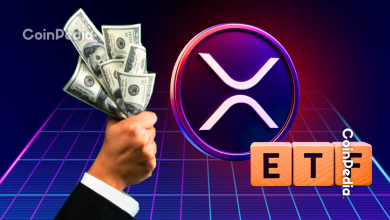
Russia's state-owned Agricultural Bank is exploring crypto payments for grain exports.
Sanctions and SWIFT bans are pushing Russia to seek blockchain-based settlement tools.
The move could reshape global commodity trade, with 49.5M tonnes of grain at stake.
Russia may be about to unlock one of the most significant real-world use cases for crypto yet – grain.
Facing mounting international sanctions and a blocked financial system, the country is now exploring the use of digital assets to settle payments for its grain exports which is a market worth tens of millions of tonnes.
It’s a serious workaround from one of the world’s biggest wheat exporters, involving its top state-backed agricultural bank and upcoming global shipments.
If successful, it could set the stage for a new kind of commodity trade – one that uses crypto!
Here’s what you should know.
Crypto as a Sanctions Workaround? Russia’s New Play
The Agricultural Bank of Russia, a state-owned institution and a central lender for the country’s farming sector, is now actively weighing cryptocurrency tools as a new payment option for grain exports.
Speaking at the Russian Grain Forum in Sochi, attended by over 1,000 participants, the bank’s First Deputy CEO, Irina Zhachkina, confirmed:
“We believe cryptocurrencies can be a convenient alternative instrument and at the moment, we together with the Bank of Russia and all the stakeholders are considering the opportunity of using cryptocurrency tools for payments in grain trading.”
Is this a new development? No.
Since 2022, the Agricultural Bank has been cut off from the global SWIFT network, had its assets frozen by the EU, and lost access to basic financial services across Europe. With pressure mounting, crypto is being looked at as a potential lifeline.
The Sanctions Go Beyond Banking – Even Ships Are Blocked
The impact of sanctions has spilled far beyond financial systems. At least 79 Russian vessels carrying grain have been banned from entering European ports and denied routine services, according to Russia’s central bank.
In that environment, alternative payment routes become survival strategies. Digital assets offer a way to keep trade flowing, even when traditional systems are out of reach.
For Russia’s grain exports, crypto could soon become the only practical option.
Grain Meets the Blockchain
Russia is looking to apply this idea directly to a massive export market. According to government forecasts, the country is preparing to export 49.5 million tonnes of grain, including 42 million tonnes of wheat, in the upcoming harvest.
That scale changes the conversation.
If even a portion of those trades move through crypto, it could reshape how commodity markets view digital settlement – not just as possible, but as necessary under certain geopolitical conditions. Exciting, right?
The World Needs to Pay Attention
While implementation details remain under discussion, the momentum is clearly building. Russia appears to be preparing for tougher sanctions ahead and wants crypto to be part of its playbook.
This shift could open the door for digital assets to be used in high-volume, government-backed trade, potentially influencing how other sanctioned nations and commodity exporters think about blockchain-based settlement.
What to Watch Next
With grain exports set to ramp up soon, eyes will be on how or IF crypto becomes part of the deal flow.
If Russia pulls this off, it could change everything for crypto. We’ll keep you updated, right here on Coinpedia.
Never Miss a Beat in the Crypto World!
Stay ahead with breaking news, expert analysis, and real-time updates on the latest trends in Bitcoin, altcoins, DeFi, NFTs, and more.
FAQs
Yes, crypto is legal in Russia, but it cannot be used for payments inside the country—only for investment and cross-border trade.
Crypto profits are taxed at a 13% rate for residents and 15% for high earners or non-residents, similar to other capital gains.
Yes, if Russia’s crypto grain trades succeed, it could legitimize blockchain-based settlement in high-volume global trade.
Trust with CoinPedia:
CoinPedia has been delivering accurate and timely cryptocurrency and blockchain updates since 2017. All content is created by our expert panel of analysts and journalists, following strict Editorial Guidelines based on E-E-A-T (Experience, Expertise, Authoritativeness, Trustworthiness). Every article is fact-checked against reputable sources to ensure accuracy, transparency, and reliability. Our review policy guarantees unbiased evaluations when recommending exchanges, platforms, or tools. We strive to provide timely updates about everything crypto & blockchain, right from startups to industry majors.
Investment Disclaimer:
All opinions and insights shared represent the author's own views on current market conditions. Please do your own research before making investment decisions. Neither the writer nor the publication assumes responsibility for your financial choices.
Sponsored and Advertisements:
Sponsored content and affiliate links may appear on our site. Advertisements are marked clearly, and our editorial content remains entirely independent from our ad partners.








